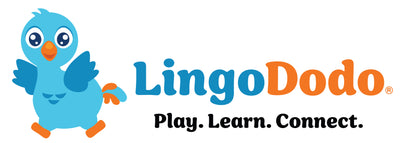
How Does The Bilingual Brain Work?
How Does The Bilingual Brain Work?
Improved Problem Solving, Greater Social Empathy, Reduced Risk of Alzheimer’s/Dementia
Time Magazine recently published an article that described the benefits of bilingualism in terms of individual health and astuteness, as well as a greater ability to relate to others. The positive effects of learning a second (or third) language are broad and many. From personal development and better interpersonal relationships, to a tie-breaker on your resume or catalyst for advancement at work, learning another language could be just what you need.
See our post about How Learning a Second Language Benefits Your Health
Increased Problem Solving Skill
“Doubling down on a pair of languages rather than just one does take extra work, but it’s work young children are generally not aware they’re doing. Bilingual people of all ages are continually addressing what research psychologist Ellen Bialystok of Toronto’s York University calls the dog-chien dilemma, encountering an object, action or concept and instantaneously toggling between two different words to describe it. Such nimble decision-making ought to improve on-the-fly problem solving, and studies show that it does.
Language researchers often point to the famed Stroop test, which asks subjects to look at the word red, for example, which is presented in an ink of a different color, say blue. Then they are required to say aloud or identify on a computer the ink color. That requires an additional fraction of a second to accomplish than if both the word and ink color were the same. Everyone experiences that lag, but for bilinguals it’s measurably shorter. ‘Monolinguals always need more time,’ Bialystok says. ‘It’s a lifelong advantage for bilinguals.’
Excelling on the Stroop test is hardly a marketable skill, but what it suggests about the brain is something else. Sean Lynch, headmaster of the LFNY, previously worked in a multilingual school in France in which all of the students spoke French and at least one of 12 other languages, including Japanese, Russian, Italian and Spanish. As is often the case with well-endowed schools, the students, on average, outperformed their age peers academically, and it’s impossible to determine how much of that is due to native skill and how much to the fact that they simply have access to better teachers, books and other resources. Still, Lynch observed that these students seemed to show a greater facility with skills that relied on interpreting symbolic representations, such as math or music.”
Social Empathy

“Lynch also believes — albeit based primarily on his own observations — that multilingual kids may exhibit social empathy sooner than children who grow up speaking only one language, which makes developmental sense. The theory of mind — understanding that what’s in your head is not the same as what’s in other people’s heads — does not emerge in children until they’re about 3 years old. Prior to that, they assume that if, say, they know a secret you probably do too. There’s a kind of primal narcissism in this — a belief that their worldview is the universal one. Once they learn that’s not the case, self-centeredness falls away — at least a little — and the long process of true socialization begins. There’s nothing that accelerates the acquisition of that kind of other-awareness like the realization that even the very words you use to label the things in your world — dog, tree, banana — are not the same ones everyone uses.
Preliminary imaging work suggests that the roots of this behavior may even be visible in the brain. Some studies, for example, have shown a thickening of the cortex in two brain regions — most importantly the left inferior parietal, which helps code for language and gesturing. Bialystok is not entirely sold on these studies, since she would expect the greatest differences to be in the frontal lobes, where higher functions such as planning, decisionmaking and other aspects of what’s known as executive control take place. Some of her own work has found an increase in white matter — the fatty sheathing that insulates nerves and improves their ability to communicate — in the frontal regions of bilinguals, suggesting denser signaling and complexity of functions in these areas. ‘Structural differences are where the new science is really unfolding,’ she says. ‘That work will reveal a lot.'”
Reduced Risk of Altzheimers and Dementia
“Language skills acquired early can pay late-life dividends. In one study, bilinguals experienced the onset of age-related dementia 4.1 years later than monolinguals, and full-blown Alzheimer’s 5.1 years later. ‘One school of thought says that any cognitive reserve — education, multilingualism, even playing Sudoku puzzles — strengthens the brain and helps it resist disease,’ says Bialystok. ‘The other says that the brains of multilinguals experience the same level of disease as those of monolinguals, but they cope with it better. They function at a higher level than they would otherwise be able to function.’
In another 2013 study, this one from the University of Kentucky, bilingual and monolingual people in the 60- to 68-year-old age group underwent brain scans while performing a cognitive task that required them to switch back and forth among several different ideas. Both groups performed the task accurately, but bilinguals were faster as well as more metabolically economical in executing the cognitive mission, using less energy in the frontal cortex than the monolinguals.
The very fact that something as simple as working with puzzles or having once got a good education can improve brain function does prove that multilingualism is not the only path to staying cognitively healthy in your dotage. And plenty of monolinguals do perfectly well at acquiring empathy and social skills early in life. Still, there are roughly 6,500 spoken languages in the world. There must be a reason our brains come factory-loaded to learn more than just one.”
